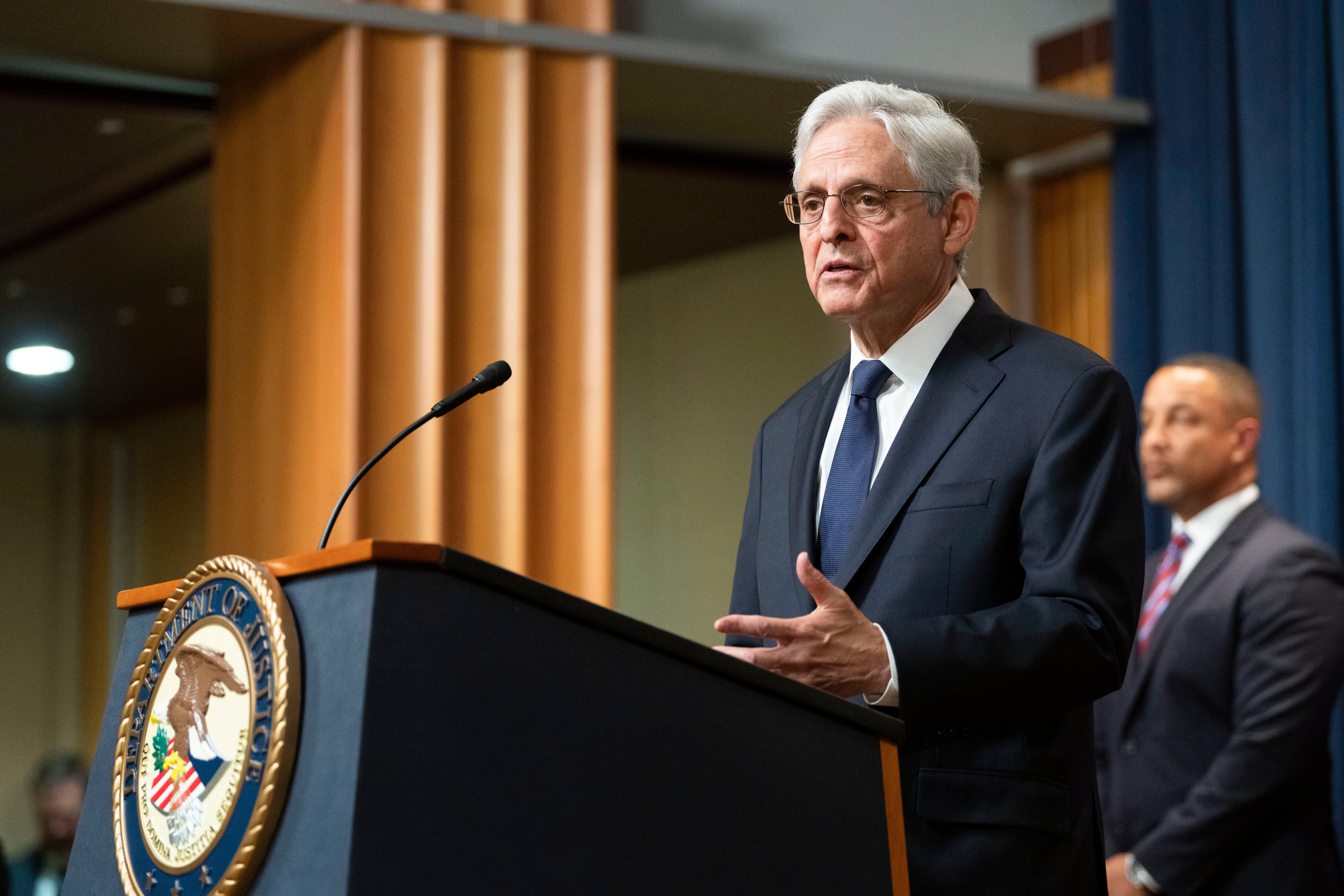Dozens in 16 states charged with health care fraud schemes, including $1.9B in bogus claims
The Justice Department has charged dozens of people in several health care fraud and prescription drug schemes

Your support helps us to tell the story
From reproductive rights to climate change to Big Tech, The Independent is on the ground when the story is developing. Whether it's investigating the financials of Elon Musk's pro-Trump PAC or producing our latest documentary, 'The A Word', which shines a light on the American women fighting for reproductive rights, we know how important it is to parse out the facts from the messaging.
At such a critical moment in US history, we need reporters on the ground. Your donation allows us to keep sending journalists to speak to both sides of the story.
The Independent is trusted by Americans across the entire political spectrum. And unlike many other quality news outlets, we choose not to lock Americans out of our reporting and analysis with paywalls. We believe quality journalism should be available to everyone, paid for by those who can afford it.
Your support makes all the difference.The Justice Department has charged dozens of people in several health care fraud and prescription drug schemes, including one totaling $1.9 billion and a doctor accused of ordering fake ankle braces for a patient whose leg had been amputated, officials said Wednesday.
The scheme involving the submission of nearly $2 billion in bogus claims is one of the largest health care fraud cases ever brought by the Justice Department, the agency said. It's one of several announced as part of a crackdown in states around the country.
In total, 78 people in 16 states were charged in a series of separate cases, which also included an alleged scheme to buy back HIV medication from patients and then resell the pills.
The defendants targeted vulnerable people and used the money they made to buy exotic cars, jewelry and yachts, federal investigators said. The federal government seized millions of dollars in cash, automobiles and real estate as part of the crackdown.
“The Justice Department will find and bring to justice criminals who seek to defraud Americans and steal from taxpayer-funded programs," Attorney General Merrick Garland said in a statement.
In one case filed in the Southern District of Florida, investigators said they found nearly $2 billion in fraudulent telemedicine claims submitted to government-funded coverage programs like Medicare and Medicaid, which mainly cover people age 65 and over and those with low incomes, respectively. No attorneys were listed Wednesday for the three men charged in connection with the online platform DMERx, and a message left with a parent company was not immediately returned.
Those cases involved templates for fake doctor orders for braces and pain creams that were used in exchange for kickbacks and bribes, investigators said.
In another telemedicine fraud case, prosecutors say a Washington state doctor, David Antonio Becerril, signed more than 2,800 fraudulent orders, including ankle braces for a patient whose leg had been amputated years before. He's accused of taking less than 40 seconds to review and sign each order. One of his attorneys, William Portanova, declined to comment.
In some cases, computer software produced fake doctor’s orders and patients were never examined or had only a brief conversation with the physician, said Omar Perez Aybar, special agent in charge of the Miami regional office for the U.S. Department of Health and Human Services' inspector general.
“There were providers and patients all across the country,” he said.
In another case, a Brooklyn man is accused of working with other people to buy more than $150 million in prescription drugs, including HIV medications from suppliers who bought back medication from patients. Steven Diamantstein is accused of re-labeling the drugs for sale. His defense attorney, Zach Intrater, said Diamantstein has pleaded not guilty to the charges and ”looks forward to contesting them in court.”
The investigation involved coordination among several agencies, including the FBI, the Drug Enforcement Administration and state Medicaid fraud units, Perez Aybar said.